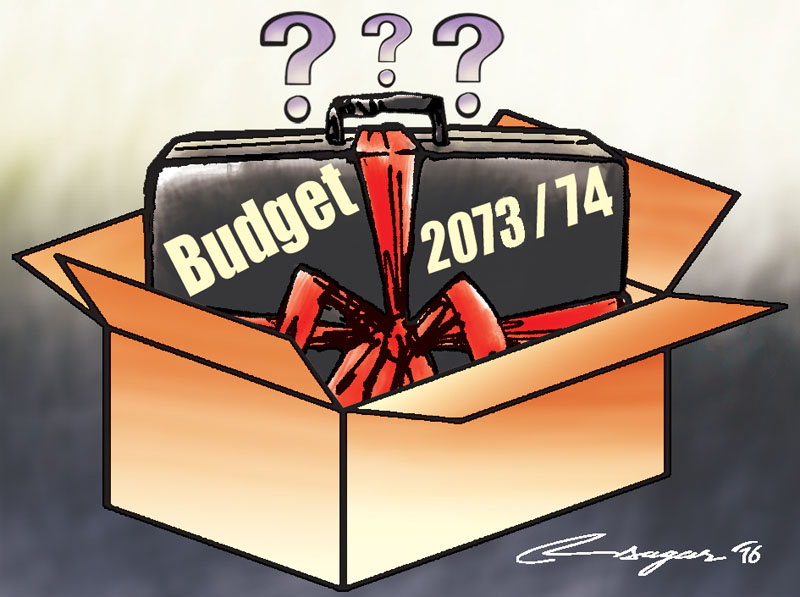‘Budget can’t sustain economic development’
Kathmandu, June 1
Opposition parties, including the Nepali Congress today criticised the government stating that the fiscal budget 2016/17 was unsustainable and not supportive of economic development as it was not based on reality.
The ruling CPN-UML defended the budget saying that it had brought pro-people programmes while other ruling parties, including CPN Maoist Centre and Rastriya Prajatantra Party Nepal remained critical of the programmes announced in the budget.
Taking part in today’s discussions on the budget presented by Finance Minister Bishnu Prasad Poudel on Saturday, Nepali Congress lawmaker and former finance minister Mahesh Acharya said that the economic development would not be possible from a budget that had been expanded in size without developing GDP and implementation capacity.
The budget was expansionary in size at a time when capital expenditure had been drastically reduced, Acharya said. “The budget has been brought expecting revenue and foreign support when economic growth rate is low and possibility of investment is also low,” he said.
NC lawmaker Minendra Rijal charged that the government had brought the budget with the intention of showing to the people but not implementing it. There is no clear vision of how resources can be mobilised although the announced programmes sound pleasant.
“Although the budget has addressed the concerns of upper class like government service holders and parliamentarians, it has not touched the lower class of society,” Rijal said.
CPN-UML lawmaker Rabindra Adhikari defended the budget and said that it was a model budget in Nepal’s history as it addressed the real concerns of agriculture, development, employment, productivity and social security.
“This budget will be a milestone for infrastructure development, expansion of road network and development of energy sector. Ultimately, it will contribute to raising the national economy,” he said.
Surendra Karki of CPN Maoist Centre said that the issues of pension to peasants, classification of land and providing share of specific companies to conflict victims were not visibly addressed in the budget.
Since, both rich and poor people have been treated equally, how can this budget become pro-socialist, he asked. The state should focus on determining priorities, investment and results, he suggested.
Sushil Shrestha of Rastriya Prajatantra Party Nepal said the budget was full of problems as it was not sufficiently discussed even within the ruling parties. The way of development is not clear in this budget, he said, adding that “the government had allocated money to set up memorial academies in the names of 22 leaders without genuine reasons”.
Geeta Chhetri of Madhesi Janaadhikar Forum-Democratic said that the budget went against the international norm of allocating minimum 20 per cent budget to the education sector. Only 11.6 per cent budget has been allocated to the education sector.
Jay Dev Joshee of CPN (United) said the budget was like an election manifesto of a certain political party brought to appease the people for votes and had failed to address the major concerns of many areas including reconstruction and education.
“The budget seems to be incredible and cannot be implemented,” he said. Discussions on the budget will resume at 11:00am tomorrow.
Meanwhile, Chairman of Finance Committee Prakash Jwala tabled a report on the Bill on Banking Crime and Punishment at today’s House meeting.






